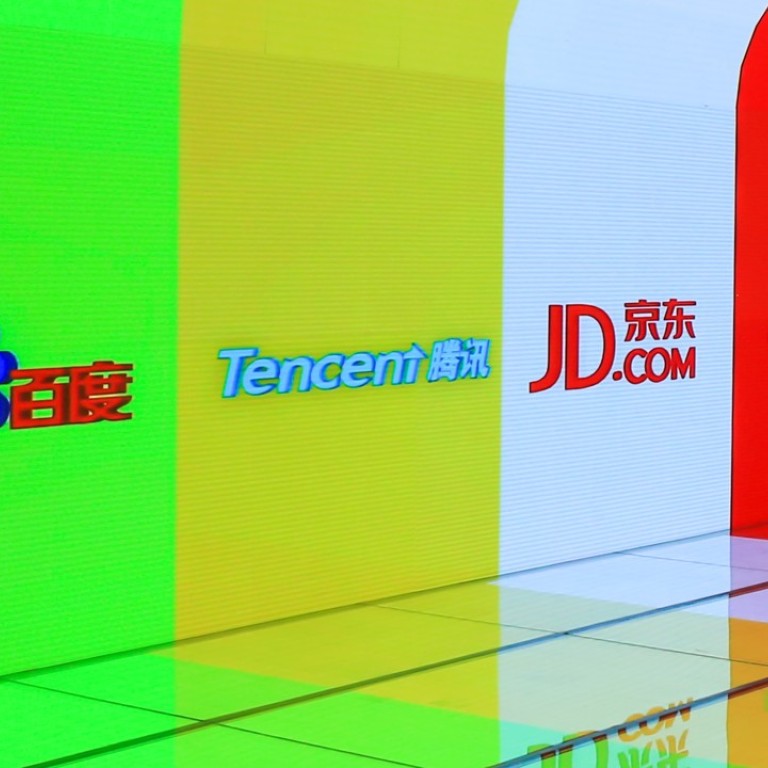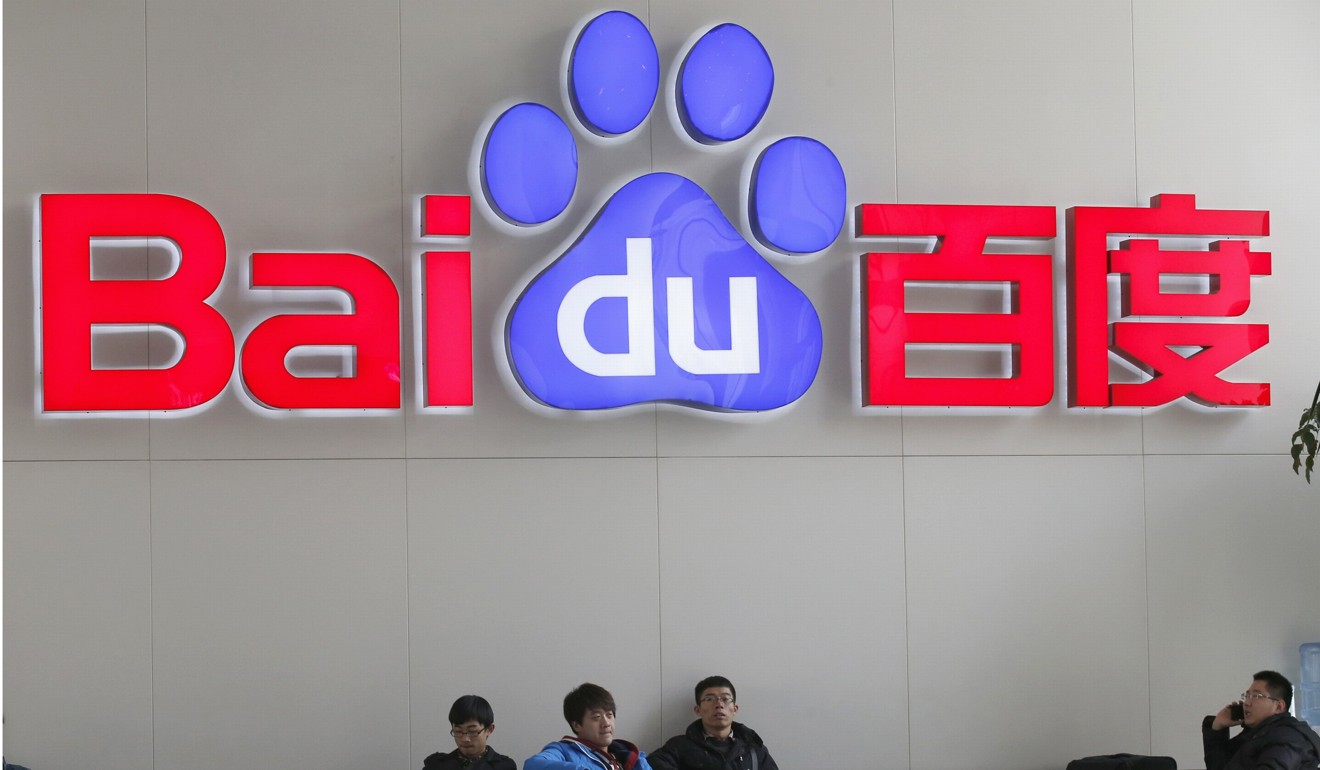
Baidu’s seismic shift towards AI must start delivering the goods
As the gap between Baidu and its top tech rivals widens, CEO Robin Li says it’s now ‘going all out’ on AI, to stay in the race
Baidu continues to spend liberally on artificial intelligence (AI) research, to improve its existing products and accelerate the development of AI-enabled new businesses.
But analysts are warning the clock is already ticking on making sure that heavy spending can be quickly translated into profit.
Baidu, Alibaba and Tencent have been dubbed as China “BATs” – a triumvirate if internet giants that dominates the country’s online sector.
Baidu still holds the biggest share of China’s search engine market, Alibaba is the country’s largest e-commerce company, while Tencent focuses on social media and online games.
However, some now argue that Baidu is slowly dropping out of that troika as it loses advertising income to social media networks and mobile platforms. Although the company has pushed further into AI, the heavy spending does not guarantee bigger profits anytime soon.
Six years ago, Baidu was China’s most valuable internet company, with a then market cap of US$46 billion in March, 2011. Today, its market cap stands at US$64.6 billion, a 40 per cent rise in that time.
Alibaba, however, which went public on the New York Stock Exchange in September 2014, has already seen its market cap top US$300 billion, up more than 30 per cent within two and half years of its trading debut.

Tencent, meanwhile, saw its market cap increase sevenfold from HK$350 billion in March 2011 to
HK$2.58 trillion now, making it most valuable company in Asia and the tenth biggest in the world.
And online shopping site JD.com is also catching up Baidu with a current market cap of US$58.6 billion.
When it comes to financial performance, the search site also appeared to be lagging.
In the fiscal year ended March 2017, Alibaba reported a 56 per cent jump in revenues to 158 billion yuan. Tencent’s gross revenues for the calendar year of 2016 increased 48 per cent to 152 billion yuan, and its net profit were up 43 per cent to 41 billion yuan.
Baidu, however, posted a 66 per cent decline in net profit for 2016, while revenues only increased 6 per cent.
“Baidu relies heavily on online search ads to generate most of its revenues. But it’s now undergoing pain as people increasingly use smartphones to access the internet,” said Qin Bo, an analyst for China Everbright Securities.
They are shrinking sharply, as advertisers reallocate budgets to social media, such as WeChat run by Tencent and mobile commerce platforms run by Alibaba.
“Baidu suffered a plunge in advertising revenues in the third quarter of 2016, while at the same time Tencent recorded a jump in ads income from WeChat and other apps on mobile devices,” added Aden Fok, an analyst for Industrial Securities.
A cancer death scandal last April also added to Baidu’s fiscal woes, after the death of a student who tried an experimental cancer therapy advertised on Baidu, sparked public outcry and tougher restrictions from regulators.
As the gap between Baidu and its top tech rivals widens, CEO Robin Li says it’s now “going all out” on AI, to stay in the race.
Baidu suffered a plunge in advertising revenues in the third quarter of 2016, while at the same time Tencent recorded a jump in ads income from WeChat and other apps on mobile devices
In May, he announced Baidu will transform “completely” to become a leader in the emerging field, in an open letter to the employees.
He said the company’s new mission was “using technology to simplify a complex world” instead of the original goal of “giving people equal and convenient access to information”.
Earlier this year, Li told China’s annual parliamentary sessions that Baidu had spent over 20 billion yuan (US$2.9 billion) on the research and development of AI in the past two years.
The company’s financial statement showed total R&D expenditure jumped 20 per cent on-year to 3 billion yuan in the fourth quarter of 2016, accounting for 16 per cent of revenues.
And in the first quarter of 2017, it splashed out another 2.8 billion yuan, again 16 per cent of all income.
“The company’s strategy has shifted from ‘all-mobile’ to ‘all-AI’, ” said Qin from Everbright, who is confident the company will eventually benefit from its technology breakthroughs, particularly in areas such as speech recognition, image recognition, and deep learning.
Last week, for instance, Baidu said it plans to leverage advanced cloud computing to analyse the online data of millions of its users to help companies improve their marketing campaigns.
The Chinese search engine giant, which has real-time search data on more than 700 million internet users, is able to analyse individual users through its cloud arm’s artificial intelligence (AI), big data and cloud computing technologies
The company has already launched Deep Speech 2 – a speech recognition system that recognises many different languages and dialects – and said its accuracy has reached 97 per cent.
The system is recognised by the MIT Technology Review to be one of 2016’s top ten breakthrough Technologies, with over 140,000 developers having adopted it through Baidu’s open platform, according to Baidu data.
Qin said Baidu has also adapted its image recognition technology for self-driving cars and its Baidu Map service, gaining vital “first-mover advantage” over its rivals.
Regardless of the progress, however, he worries slightly how quickly artificially intelligence will become relevant for Baidu.
“Big R&D spending has put fiscal pressure on the company and it likely to affect its profitability in the short term,” Qin said.
He is now predicting Baidu’s net profit to continue falling in 2017, down 6 per cent from 2016. Nonetheless, it may resume positive growth in 2018, up 22 per cent on-year.

